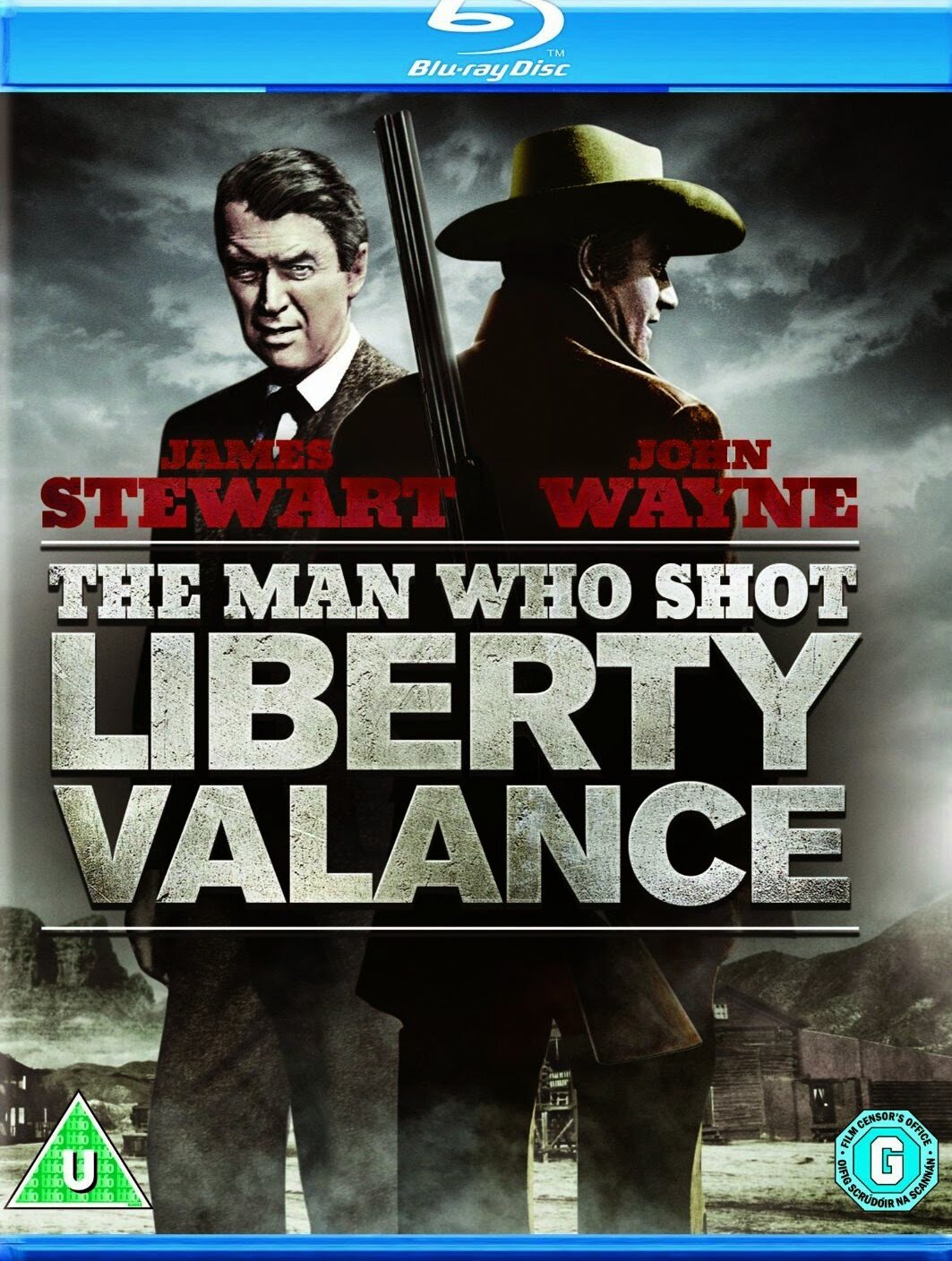In his National Review piece Kyle Smith notes that this movie is most famous for its cynicism of the press, and the puncturing of Old West mythology; its most famous line being “This is the West, Sir. When the legend becomes fact, print the legend.” In this view, the film was pioneer postmodern. There should not be an abundance of joy in the destruction of myth. As Jordan Peterson often reminds us, shared mythology is part of the cultural cement that holds us together, just as the Arthurian legends instructed actual knights on the meaning of chivalry.
Kyle gets beyond all of that to describe the film’s loving caress of our founding documents; especially the Bill of Rights guarantees of the freedom of the press, and the right to assemble. Ransom Stoddard, the lawyer from back east played so effectively by James Stewart, is much more than a bumbling tenderfoot. As Kyle writes,
“The lawlessness of the old West is, like the institution of slavery, a betrayal of the Founding ideal, and Stoddard stands for a new, laws-based America that lives up to the Declaration of Independence and the Constitution.”
Here is something else the film is famous for – every two-bit imitation of John Wayne includes calling someone “Pilgrim,” and this is the epithet John Wayne’s character, the gunfighter Tom Doniphon, throws at Ransom repeatedly. Stoddard is indeed a “pilgrim” in a deep historical sense; for he brought more than law books with him.
When the time comes for a town meeting to select delegates to a territorial convention (held in a saloon, naturally) the raucous crowd hands the gavel (actually a bar bung hammer) over to Stoddard, whereupon he imposes Robert’s Rules of Order. When was it first agreed upon this continent to hold such meetings? It was on board the Mayflower, anchored just off Cape Cod in November of 1620, where it was agreed in writing to:
Covenant and combine ourselves together into a civil Body Politick, for our better Ordering and Preservation, and Furtherance of the Ends aforesaid: And by virtue hereof do enact, constitute and frame, such just and equal Laws, Ordinances, Acts, Constitutions, and Officers, from time to time, as shall be thought most meet and convenient for the General Good of the Colony, unto which we promise all due Submission and obedience.
From that time to this, many New England towns have been run by meetings not unlike the one held in that saloon, as Rockwell depicted in his famous Freedom of Speech:

Of course, self-government without general literacy is impossible, and so Ransom Stoddard holds reading classes in a room next to the newspaper office, for both children and adults. The subject being studied? Our founding documents, and a newspaper column demonstrating how our rights are exercised. The Puritans of Massachusetts also knew full well that literacy is the foundation of well-ordered liberty. They enacted The Old Deluder Act, mandating public schools, to combat the schemes of that “old deluder,” Satan. Evil thrives in the absence of the rule of law, just as the ironically named Liberty Valance (played with perfected villainy by Lee Marvin) must destroy the newspaper, along with its editor, and disrupt the selection of delegates with threats and intimidation. In this Valance goes too far, and when the law book does no good, Ransom Stoddard is forced to step out into the street with a gun in his hand…
Oh, and let us also not forget that song, which sadly did not make it into to movie, but is a salute to a simpler time:
Happy Thanksgiving!



Comments